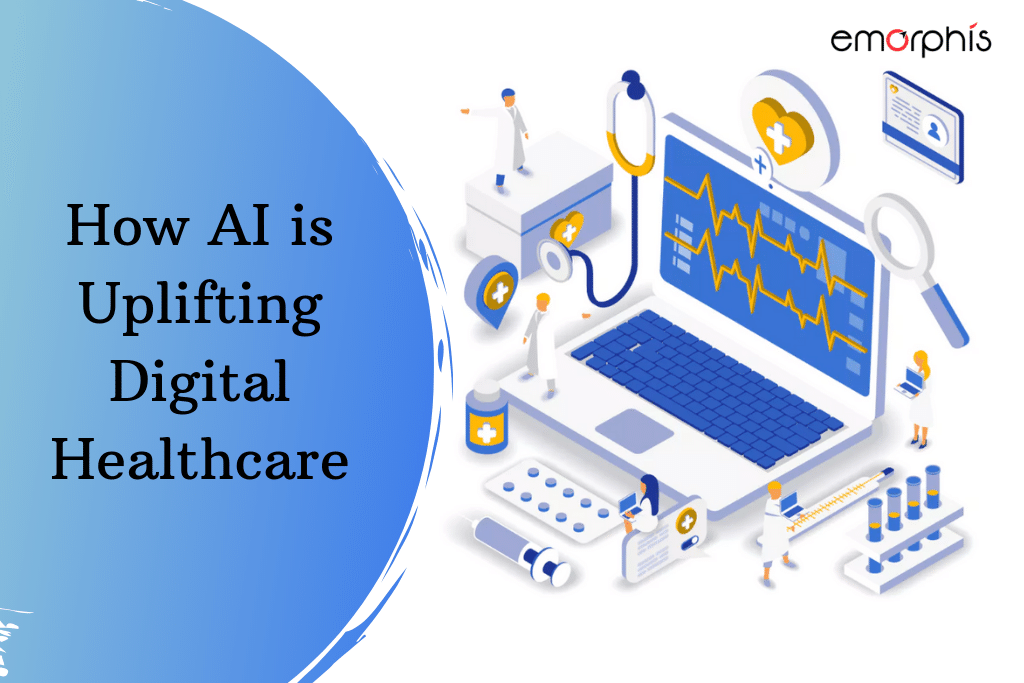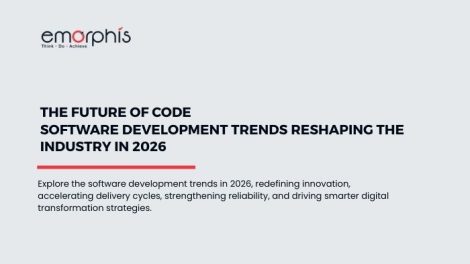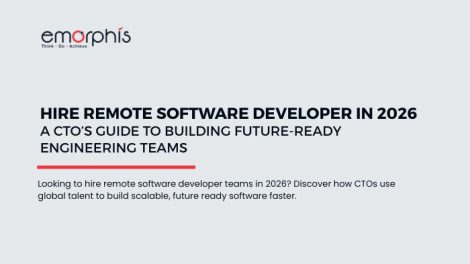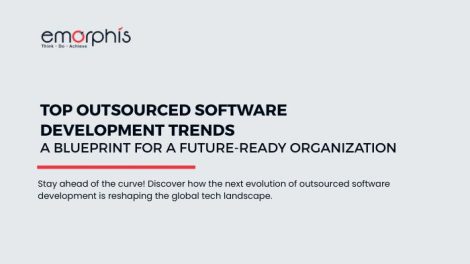As per the growth rate of current technology, the day is not far, when machines and computers will be used to do almost every job. Moreover, the healthcare domain holds no exception. Considering today’s time computers and smart devices have taken up almost every aspect of our lives. Today, we start our day with smartphones gathering news and updates. Also, when it comes to work hours, we switch to our laptops and computers for work. It is not wrong to say that technology has made a successful entrance into our day-to-day lives. The medical industry has experienced a huge hit by the wave of trending technologies. To name a few are AI in healthcare, machine learning, also, the Internet of things, robotics, and whatnot.
Advanced forms of healthcare are coming into existence with the hand-in-hand support of technology. Insurance companies and hospital facilities are now experiencing better rates of productivity with new technology trends and automation.
According to a survey, around 86% of healthcare companies are utilizing artificial intelligence. The revenue growth of these companies is expected to raise up to $54 million by the year 2020 with the use of Artificial intelligence.
Artificial Intelligence and Digital Healthcare
Healthcare data is collected through many devices. Moreover, with the use of artificial intelligence, this data can be segregated. Also, can be helpful in the form of medical records and miscellaneous records. Moreover, by making sense of this bulk data through data management; AI can help in tracing and reformatting it for better access. This is one of the most popular uses of artificial intelligence in the field of healthcare.
By making use of the potential of AI applications, healthcare application development can grow at a faster pace. Thus providing better treatments to patients. In fact, massive research and development is going on for applications utilizing AI in healthcare. Let us check a few examples that answer how.
Artificial Intelligence Bringing a Positive Change in Healthcare Application Development
1. Virtual Healthcare Assistant for Personal Growth
As the world is turning towards smart devices, smartphones are still the most popular choice. Different smartphone-developing firms are getting competitive for creating better user experiences. One such feature that the leading smartphone manufacturing companies are focusing on is- Personal Virtual Assistants. Different popular options are available in the market such as Siri, Cortana, and Google Assistant. Moreover, they hold tremendous capabilities of AI that make them act like a human.
These systems, when combined with healthcare application development, can generate huge benefits for the people and the companies as well. Virtual assistants, with healthcare apps, can help notify people about their medicine timing and drug alerts. Also, provide them with patient education material while providing human-like interactions to detect the current mental state of a patient. Moreover, the use of artificial intelligence along with these virtual assistants can deliver immense healthcare benefits. Furthermore, this will help in achieving monitoring and assisting facilities for patients in the absence of a doctor.
2. Improved Analytics making Healthcare Application Better than Ever
Artificial intelligence in healthcare app development is not just about understanding human commands and responding. As a matter of fact, it’s more than that. For example, medical research centers are using AI to detect the latest use cases in the field of oncology. This is to detect abnormalities in reports of X-rays and MRIs. It is also in use for genomics and precision medicine for providing customized treatments. Which is further, according to individual patients based on their conditions.
As per an example illustrated by IBM Watson, artificial intelligence has successfully displayed its capabilities for processing structured and unstructured data obtained from patients. Considering the field of Oncology, AI can work to provide treatment recommendations to patients also as per the company.
3. Smart Devices Enabling Better Healthcare
Patients with chronic healthcare conditions often need constant check-ups and healthcare providers understand the importance of maintaining constant contact with such patients despite their location. Though many hospitals have introduced life coaching services as a part of their regular overall care, it is often not as cost-effective as it should be. However, with the aid of artificial intelligence and mobile applications working on this technology, it has become very easy for patients to stay in touch with their doctors and vice versa.
Wearable devices can pull out many data elements that can allow the physician to keep track of the patient’s health level regularly. Moreover, these AI-based technology devices also act as powerful mediums for people to take care of their health on a personal level by motivating them to pursue certain goals for a particular day. The alerts and notifications via these devices help monitor the vitals of patients and deliver them to the physician as well as determine the health of a patient.
You may also like reading- How IoT is boosting Healthcare
4. Healthcare Bots
Online healthcare portals are trending nowadays to provide healthcare across boundaries. These portals are also utilizing a new form of assistance for patients with the help of healthcare AI bots. A healthcare AI bot is a software application that has AI logic. It can perform the function of interacting with a patient through a chat window on a healthcare website portal. These are particularly very useful in scheduling appointments and helping patients with their medical billing needs.
Such uses of AI in the field of healthcare can improve patient satisfaction levels and make them likely to fix more appointments through online channels only. From the medical provider’s or hospital’s perspective, these healthcare bots can reduce administrative costs by offering 24×7 assistance to people by scheduling their appointments and providing them with billing or serving their other clinical requests.
5. Medical Imaging Analysis
AI in healthcare has many useful cases for radiology. With the power of AI and radiology in healthcare, we can create hybrid intelligence, which can help us gain more accuracy in terms of diagnostics and improve safety standards as well. These programs could also serve as support systems that have the potential to facilitate diagnostics thus, taking off the pressure off physician’s shoulders.
Moreover, AI in radiology can also help by assisting in diagnostic processes by analyzing medical images for MRIs, X-rays, as well as CT scans. The information can be helpful in terms of providing feedback, which can easily be missed by the human eye.
Conclusion
Medical practitioners as well as patients, both are being benefited through the application of AI in healthcare. For example, Patient data is constantly checked for any anomalies through predictive medical care and before the occurrence of any healthcare condition, effective suggestions can be given to the patients to avoid them.
On the other hand, diagnosis is improved as AI allows faster research and cross-referencing of data. The obtained data is detailed too including handwritten notes, sensor data, as well as the test results. Apart from these benefits, AI also allows cost savings in the long term for both patients as well as care providers through treatment choices, efficient diagnosis, and better decision-making help for drug development.
Further, find more details on Progressive Web Apps







